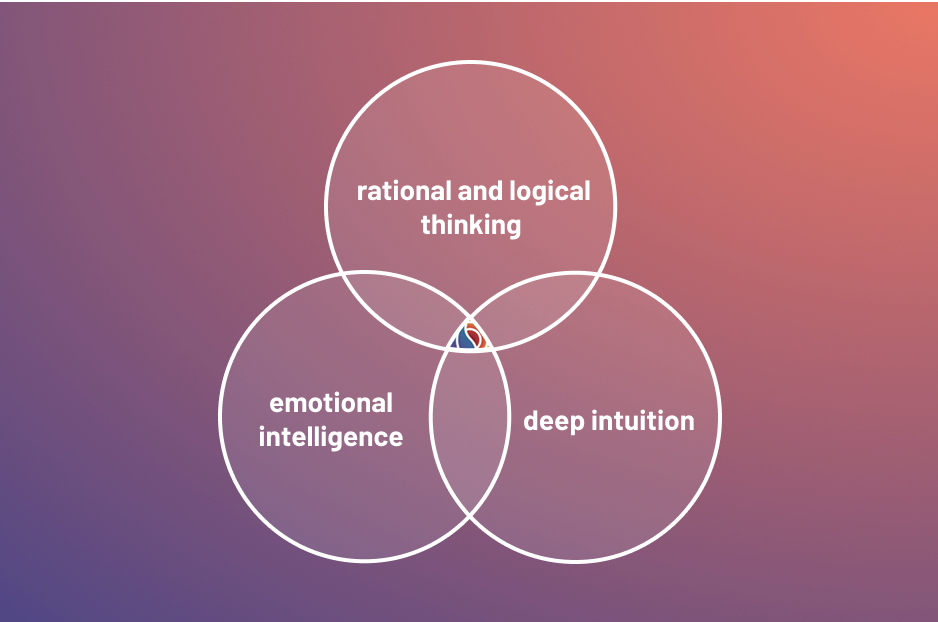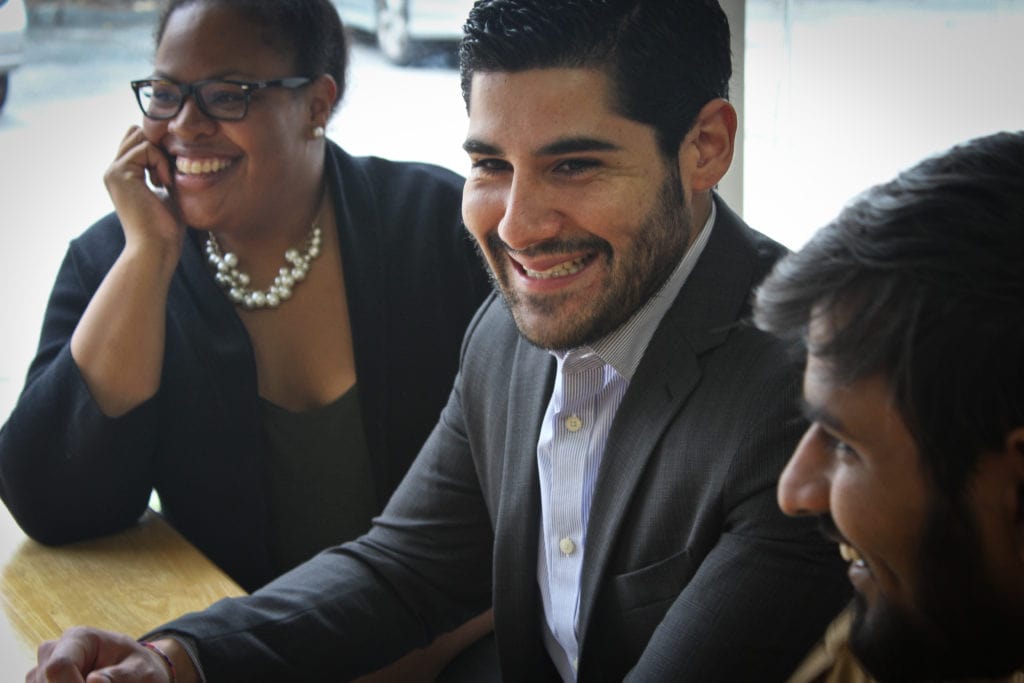Originally established as the Institute of Transpersonal Psychology (ITP), Sofia University is the birthplace of the Master of Arts in Transpersonal Psychology (MATP). Our innovative and multidimensional program combines theory and practice, instilling in you the ability to serve both professional and community settings. The MATP is primarily an online program, with a residency component twice during the two-year program for 5 consecutive days each. These seminars are conducted like retreats, either in person (*safety permitting) or through virtual teleconferencing.
As you move through the MATP program, our faculty invite you to select one of three concentrations to support your calling to this field: Transformative Life Coaching, Creativity and Innovation, or Spiritual Psychology. In addition, we also offer the option of including a secondary concentration in Transpersonal Ecopsychology.
State Authorizations for Distance Education
Sofia University is licensed, registered, authorized, certified, or formally exempt in the following states and territories as indicated on our State Authorizations page.
Professional Licensure
Please visit our Professional Licensure page for more information.
Spring Start Date: | April 6, 2026 |
|---|---|
Summer Start Date: | July 7, 2025 |
Fall Start Date: | September 29, 2025 |
Winter Start Date: | January 12, 2026 |
Program Length: | 2 years |
Total Number of Units: | 42 (Minimum) |
Estimated Total Cost: | $29,600 |
Estimated Fees: | $2,200 |
Format: | Online + Low-Residency |
Campus: | Palo Alto, CA Costa Mesa, CA |
GRE/GMAT: | Not Required |
Key Program Highlights:
We blend scholarship in transpersonal psychology with meaningful, transformative learning that inspires actualization and wholeness in you.

Transformative Learning
Whole-person, transformative, experiential learning.

Transpersonal Grounding
Grounding in transpersonal theories, principles, and practices.

Spiritual Exploration
Exploration of transpersonal, spiritual, ecological, and creative practices.

Right Livelihood
Alignment with right livelihood through the development of personal vision and goals.

Dynamic Classrooms & Practicum Significance
Engaging, interactive classrooms guided by passionate instructors. Real-world, hands-on practicum experiences.

Transformation Reflection
Reflection on personal stories of transformation.
Career Outcomes
Social Work
Median wages (2023)
$29.49 hourly, $61,330 annual
Consultant
Median wages (2023)
$48.08 hourly, $100,000 annual
Entrepreneur
Median wages (2023)
$39.92 hourly, $81,729 annual
Social Advocate or Leader
Median wages (2023)
$22.62 hourly, $47,070 annual
Teacher
Median wages (2023)
$33.45 hourly, $69,597 annual
Non-Profit Work
Median wages (2023)
$44.62 hourly, $92,801 annual
Life Coach
Median wages (2023)
$31.31 hourly, $65,140 annual
Health & Wellness
Median wages (2023)
$24.53 hourly, $51,030 annual
*Career information provided through this website is based on U.S. Bureau of Labor Statistics data provided through O*net online.
MATP Information Session
Discover what Sofia University’s MATP program has to offer in this informative video featuring Program Chair Dr. Robert Wood provides an in-depth overview of the MA in Transpersonal Psychology program at Sofia University. Dr. Wood discusses the unique structure of the program, its many benefits, and the career outcomes students can expect upon graduation.
Get Real-World Experience
The Work Integrated Learning (WIL) component provides students with hands-on experience in a career-based environment, allowing them to apply classroom knowledge while receiving mentorship from faculty and feedback from workplace supervisors. This program encourages the development of rational thinking, emotional intelligence, and intuition in organizational decision-making, preparing students to become transformative leaders in a dynamic academic landscape. Ultimately, the MATP with WIL equips students to adapt to changes in psychology practices, ensuring long-term success and stability.

Curriculum:
To receive a Master of Arts in Transpersonal Psychology, students must successfully complete a minimum of 48-51 units depending on the concentration deleted. A dual concentration is also available, which requires additional units and time. The following are specific degree requirements.
- 17 units in core courses
- 16 – 22 units in concentration courses
- 16 units in creativity & innovation
- 16 units in spiritual psychology
- 22 units in transformative life coaching
- 12 units in elective courses
The Foundational Year provides students with theories, practices, and embodiment of transpersonal and spiritual psychology.
- MTP7201A Opening Seminar (1)
- MTP7401 Embodied Spirituality (3)
- MTP7402 APA Writing Style (1)
- MTP7403 Foundations in Transpersonal Studies (3)
- MTP8300 Creative Expression and Transformation (3)
- MTP7603 Theories of Personality (3)
- MTP7801 Spiritual Development Across the Lifespan (3)
MATP students select at least one professional Concentration to focus their second year of study. As part of the Concentration, students complete two Capstone Projects, which highlight their professional identity and transpersonal knowledge: MTP9042 Showcase Portfolio demonstrates how students’ personal vision, scholarship, experience, and education come together; and MTP9077 Community Action Project enables students to demonstrate how transpersonal education can be integrated into community service. The following are the three primary Concentrations:
- Creativity and Innovation
- Spiritual Psychology
- Transformative Life Coaching
Students may also add a focus in Transpersonal Ecopsychology to their primary Concentration or complete two Concentrations:
- Primary Concentration (above) and Sub-concentration in Transpersonal Ecopsychology
- Concentrations in Transformative Life Coaching and Creativity and Innovation
- Concentrations in Transformative Life Coaching and Spiritual Psychology
- Concentrations in Creativity and Innovation and Spiritual Psychology
The Concentration in Creativity and Innovation helps students work and use creative thinking skills in order to solve problems and make decisions within communities. It focuses on creative expression and imagination to move communities and organizations forward. The knowledge and leadership skills developed in this Concentration are applicable to work in institutional settings, corporations, hospitals, schools, and with individuals. It is key for entrepreneurial ventures. This Concentration addresses the educational goals of those who see themselves as “Cultural Creatives” and who want to develop new and original ways of impacting social change.
This Concentration provides the educational background necessary to apply for the Registered Expressive Arts Consultant/Educator (REACE) Credential through the International Expressive Arts Therapy Association (IEATA). Students will be required by IEATA to complete additional experiences and supervision upon graduation for credentialing. Students are encouraged to review the credentialing requirements established by IEATA as these may change over time; Sofia University does not guarantee credentialing of any particular student who completes the MATP program with a Concentration in Creativity and Innovation.
Students are awarded a Certificate in Creative Expression upon successful completion of the Concentration in Creativity and Innovation. Their practicum experience (MTP8873 Professional Practicum I, MTP9974 Professional Practicum II) and paper for MTP9077 Community Action Project must involve an aspect of creative expression in order to be eligible for the Certificate.
- MTP7201B Transitional Seminar (1)
- MTP8303 Empowering Community Through the Expressive Arts (3)
- MTP8373 Professional Practicum I (1)
- MTP8374 Professional Practicum II (2)
- MTP8387 Ways of Knowing: Creative, Intuitive, and Collective (3)
- MTP8399 Inquiry into Creative and Innovative Processes (3)
- MTP9041 Transpersonal Integration Paper (3)
The Concentration in Spiritual Psychology helps students to bring spirituality, consciousness, and wholeness into communities. It focuses on mindfulness, deep listening, community action, and respectful interactions with individuals and community groups. The knowledge and leadership skills developed from this Concentration are applicable to work in institutional settings, corporations, hospitals, schools, and with individuals. This Concentration may be relevant to Yoga teachers, spiritual guides, educators, therapists, and other professionals who seek to integrate wholeness into their work environment.
- MTP7201B Transitional Seminar (1)
- MTP8373 Professional Practicum I (1)
- MTP8374 Professional Practicum II (2)
- MTP8387 Ways of Knowing: Creative, Intuitive, and Collective (3)
- MTP8212 Contemplative Practices in Heart, Mind, and Community (3)
- MTP8799 Inquiry into Embodied Spirituality (3)
- MTP9041 Transpersonal Integration Paper (3)
The Concentration in Transformative Life Coaching is based on the theoretical principles and practices of ontological coaching. Ontological coaching facilitates the emergence of personal and professional life by exploring how humans co-create reality and perception. It addresses both action and the transpersonal levels of awareness. The Concentration aims to prepare students for a career as a coach or another professional field that integrates and makes use of coaching practices. It prepares students to enter into a professional coaching relationship with clients and to establish a specialized coaching practice.
The Concentration in Transformative Life Coaching is designed to provide the educational background necessary to apply for coach certification through the International Coach Federation (ICF). Students are encouraged to review the credentialing requirements established by ICF ( https://coachfederation.org/) as these may change over time; Sofia University does not guarantee credentialing of any particular student who completes the MATP program with a Concentration in Transformative Coaching.
- MTP7201B Transitional Seminar (1)
- MTP8800 Introduction to the Transformative Coaching Process (3)
- MTP8805 Entrepreneurial Spirit (3)
- MTP8811 Practicum in Transformative Coaching I (3)
- MTP8812 Practicum in Transformative Coaching II (3)
- MTP8813 Advanced Practicum in Transformative Coaching (3)
- MTP8799 or MTP8399 Inquiry into Embodied Spirituality or Inquiry into Creative and Innovative Processes (3)
- MTP9041 Transpersonal Integration Paper (3)
- MATP students are required to complete 12 units of Elective courses selected based on their personal interests and professional goals. The following courses may be used to fulfill the Elective Course requirements:
- MTP8201 Archetypes, Myths, Symbols (3)
- MTP8202 Transpersonal Approaches to Dreams and Dreaming (3)
- MTP8204 Creative and Conscious Aging (3)
- MTP8205 Eco-Spirituality (3)
- MTP8206 Ecopsychology (3)
- MTP8207 Sustainability, Culture, and Sacred Ecology (3)
- MTP8208 Nature-Based Programs and Wholeness (3)
- MTP8212 Contemplative Mind (3)
- MTP8213 Tree of Life: A Brief Introduction (3)
- MTP8804 Psychosynthesis* (3)
- MTP8805 Entrepreneurial Spirit* (3)
- MTP6411 Psychology of Extraordinary Dreams (3)
- MTP6214 Anomalous States of Consciousness (3)
- MTP8452 PTSD Psychology and Healing Methods (3)
MATP Concentrations
Pick the path that speaks to your journey – both personally and professionally.
Creativity and Innovation
Career outcomes include:
- Social Work
- Consultant
- Entrepreneur
Spiritual Psychology
Career outcomes include:
- Social Advocate or Leader
- Teacher
- Non-Profit Work
Transformative Life Coaching
Career outcomes include:
- Life Coach
- Health & Wellness
Frequently Asked Questions (FAQs):
The MATP program at Sofia University, originally established as the Institute of Transpersonal Psychology (ITP), is a unique and multidimensional program that combines theory and practice. It primarily serves online, with a residency component twice during the two-year program. The curriculum is designed as a journey, guiding you towards a deeper understanding and reimagining of your approach to living through scholarly readings, experiential learning, integration, and creative exercises.
The upcoming start dates for the MATP program are Fall – September 10, 2024, and Winter – January 13, 2025. These dates provide prospective students with multiple opportunities throughout the year to begin their journey.
The MATP program at Sofia University provides concentrations in Transformative Life Coaching, Creativity and Innovation, and Spiritual Psychology. Depending on the chosen concentration, career outcomes may include roles in social work, consulting, entrepreneurship, life coaching, health & wellness, social advocacy or leadership, teaching, and non-profit work.








